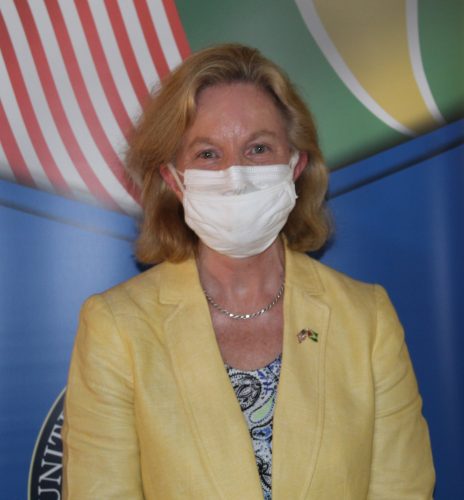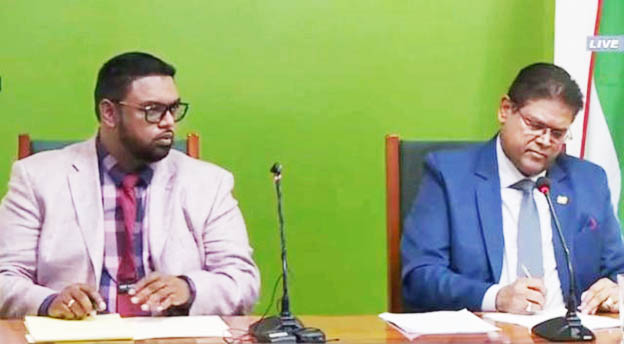With relations between Guyana and Suriname experiencing a unique moment in the history of the two South American republics, the authorities in the respective capitals, Georgetown and Paramaribo, would, one feels, be decidedly reluctant to break a lance over an issue that has remained a bone of contention between the two countries. For several years hundreds of fisher folk from the Guyana side of the Corentyne River have complained to the authorities here about what they say are the extortionist pursuits of the Surinamese military who seek to extract a toll from the intrepid fishermen whenever their boats are encountered in the river.

Sarah-Ann Lynch
For the sakes of both countries one would hope that what fishermen on the Guyana side say is a resurgence of harassment by the Surinamese military seeking to extract an illegal toll that allows them to fish in the river would pass without escalation into a more direct bilateral confrontation. At this time it is bilateral cooperation that ought to be on the forefront of the agendas of the two countries, their respective world-class oil finds within the space of five years creating an opportunity for cooperation that can become a game-changer not just for the respective countries but for South America as a whole.
It has to be said that over the years it is the Surinamese military in their naval patrol boats that have been getting the upper hand. Truth be told, the Corentyne fishermen have been subjected to years of bullying and extortion and the Government of Guyana’s response has been hamstrung by the fact that it has been unable to provide an effective deterrent to the actions of the Surinamese. Over several years, the issue of the plight of the Corentyne fishermen has arisen at numerous meetings of the Guyana/Suriname Joint Com-mission. Unfortunately, those meetings have been frequently characterised by surliness and jingoism, never seeming to secure an environment in which the issue of the fishermen could even be seriously constructively discussed, far less settled. In April this year, the issue of fishing in the Corentyne River was among the issues discussed at a meeting between the fishermen and members of the Corentyne business community and United States Ambassador to Guyana, Sarah-Ann Lynch… a clear indication that the issue of bilateral relations between Georgetown and Paramaribo is not going unnoticed in Washington.
Last week, yet another group of fishermen met with a senior government official, this time, Minister of Agriculture Zulfikar Mustapha, to register another round of complaints about what they say is harassment by Surinamese patrol boats in the Corentyne river. Worryingly, the Guyanese fishermen say that they have been complying with the wishes of the Surinamese authorities that they secure licences from Paramaribo to fish in the river. That meeting seemingly failed to go beyond the tossing of the matter of the harassment of the Corentyne fishermen back into the court of the Foreign Ministry.
Observers on the Guyana side appear to have concluded that with the authorities in Suriname not doing everything that they can to bring an end to the harassment of the Guyanese fishermen, the authorities in Guyana have, over time, failed to impose any form of effective pressure, diplomatic or otherwise, to bring about a change.
The question that arises is whether the problems associated with the harassment of Corentyne fishermen by Surinamese maritime patrols can be settled once-and-for-all through diplomatic channels or whether the problem will persist to the detriment of the promise that appears to lie in store for Guyana and Suriname in the period ahead arising out of their new-found oil wealth.










